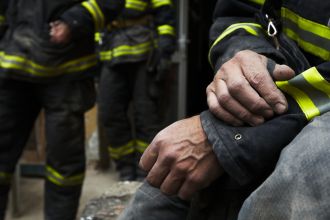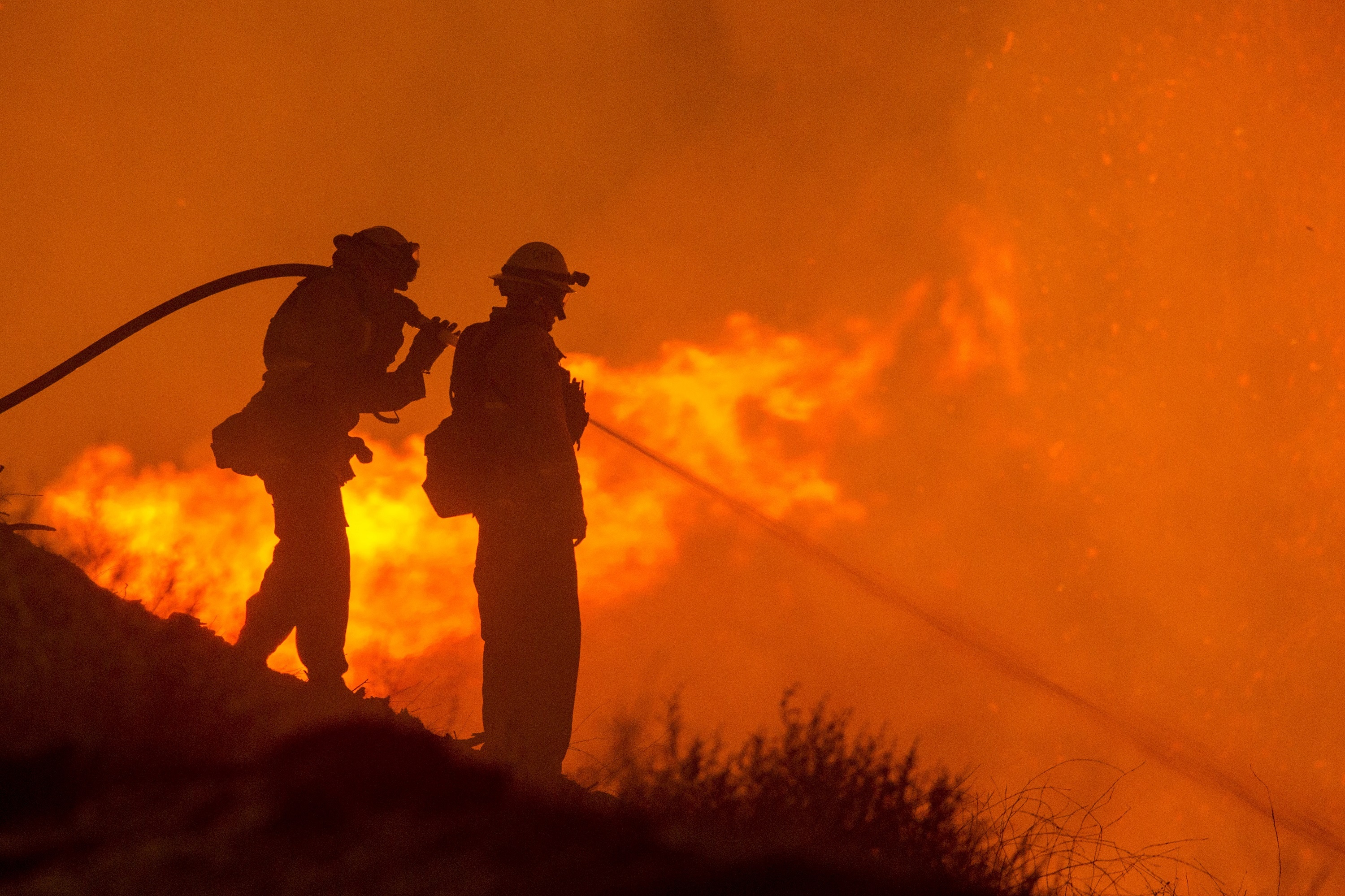News release
From:
Bushfire season: Research reveals ongoing effects of 2019/20’s ‘Black Summer’ on volunteer firefighters
As Australia braces for another bushfire season, a new Edith Cowan University (ECU) study has revealed our volunteer firefighters are still reeling from the effects of the catastrophic 2019/20 Black Summer fires.
Of the nearly 65,000 responders who helped during the Black Summer bushfires, 78 per cent were volunteers.
Every participant in the study reported the experience had impacted on their wellbeing.
Nearly half reported post-traumatic stress symptoms in the 12 months following the fires, with 11.1 per cent diagnosed with post-traumatic stress disorder (PTSD), while 5.5 per cent admitted to making suicide plans.
The main issues centred around a fear for their safety, minimal time between deployments to fight fires, and the cumulative effect of being exposed to multiple traumas over a long period of time.
Despite this clear impact on wellbeing among the participants, less than half (48 per cent) had sought mental health support in the year following the fires.
Research lead Associate Professor Erin Smith said the results were concerning and also revealed a lack of progress in supporting emergency responders.
“Experience from the 2009 Black Saturday bushfires in Victoria told us the mental health impact on those who respond to major bushfire events will likely be complex and protracted,” she said.
“Firefighters and other support personnel were at increased risk of developing PTSD, depression, anxiety and complicated grief compared to the general public.
“When these issues were inadequately treated, they carried an increased risk of suicide.
“So why, some ten years later during another major bushfire event, are we dealing with the same problems?”
Something in the way
The majority of participants claimed their organization hadn’t provided enough support, with many simply providing a link to an Employee Assistance Program.
Professor Smith said a big obstacle in volunteers accessing traditional counselling programs was the reported need for firefighters to share their experiences with others who had also been in similar situations.
“Participants frequently highlighted that the most effective method for supporting wellbeing was sharing what they had gone through with someone who ‘got it’,” she said.
Other volunteers said they were uncomfortable in seeking help regardless of what was available as they felt it would negatively affect – or even end – their careers.
Illustrating this, only 15 per cent of participants who sought help did so via their organisations.
“Contributing to this is the ongoing toxic masculine culture associated with emergency service organisations,” Professor Smith said.
“This culture continues to promote the belief that speaking out about mental health is weak, and that there is a need for firefighters to be impervious to the impact of trauma exposure.”
The way forward
The research identified some key themes to improve the standard of care and support provided to volunteer firefighters.
First, Professor Smith says support needs to be reactive and proactive, where organizations are able to “reach in” to offer help, and volunteers are able to ‘reach out’ to ask for support.
“Organisational leaders need to be provided with opportunities to learn more about mental health and how they can best have those types of conversations,” she said.
And while Employee Assistance Programs have a role to play, they can’t be seen as tokenistic; instead they need to embrace face-to-face conversations with those who have shared similar experiences, and offer a range of avenues for different people.
“Potential options identified by participants included chaplains, psychologists, counsellors and animal-assisted therapy,” Professor Smith said.
The research also showed a culture needed to be cultivated where firefighters stopped fearing negative consequences of seeking help for their mental wellbeing.
Professor Smith said as bushfires become more frequent and intense, it was vital steps were taken to address the concerns raised in the study.
“A critical part of preparing for future fire seasons is ensuring the wellbeing of volunteer personnel who are called upon to respond to fires and protect our communities.”
'Supporting volunteer firefighter wellbeing: Lessons from the Australian “Black Summer” bushfires’ will be published in Prehospital and Disaster Medicine.
Multimedia




 Australia; WA
Australia; WA


